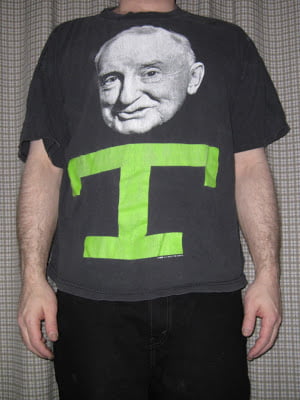Minimalism is a big thing. From tiny houses to 100 things challenges, it seems that there is a building pushback against the McMansion-loving, stuff-buying, American-dream excess of our modern age, where what you buy determines who you are.
From the beginning of this site, in response to articles like this one or this one, people have suggested that I was a minimalist in all but name.
And actually, this isn’t true, at least not primarily.
Minimalism has a lot of good things going for it, but I think there’s more to the story.
Table of Contents
Definitions are hard
Let’s acknowledge at the onset that it’s hard to find an agreed-upon definition of minimalism.
Becoming Minimalist states a number of philosophies, among them: “Minimalism is freedom from the passion to possess” and “Minimalism is freedom from duplicity”.
The Minimalists define minimalism as: “a tool to rid yourself of life’s excess in favor of focusing on what’s important—so you can find happiness, fulfillment, and freedom.”
Heady stuff, for sure. But regardless of what anyone says, in the popular imagination, the way that people talk about minimalism is simple: Getting rid of excess stuff. Pairing down. Smaller everything.
Stuff
And let’s be honest, we all could use a lot less of what we have.
George Carlin famously said that our house is “a place to keep your stuff while you go out and get more stuff“.
And since the size of houses keep increasing, those who live in houses we have more places to store stuff than ever before.
We’re really good at acquiring stuff. It’s the getting rid of it part that we struggle with. That’s partially because we’re taught to acquire (through cultural and marketing messages) but there’s not really any cultural guidelines for getting rid of things.
This makes us vulnerable to the pendulum swinging in the other direction.
When and what to pare down
The “own 100 things” challenge is exactly what it sounds like: you mercilessly pair down until you own only 100 things. Many people have taken this challenge.
Also, there are the time-based adages: “if you haven’t worn something in a year, get rid of it“, “if you haven’t touched the thing in a year, it’s time to let it go.”
I disagree with all of this.
I have a scrapbook of my first trip to Europe. Yes, an actual physical scrapbook. It not only has pictures of my trip, but also artifacts too, tickets, brochures and the like. I spent months working on it back in college.
I haven’t looked at it in a year or two. Does that mean I should get rid of it? Are you kidding me?
Same thing with clothes. Should I get rid of my They Might Be Giants tour shirt? I love that shirt, and it still fits me, even though I haven’t worn it in a year.

And what about letters from friends when I was a kid? High school yearbooks? I haven’t looked at my framed college diploma in years either. Am I getting rid of that too?
Stuff isn’t all created equally. Some things that we own give us pleasure, not everything needs to experienced frequently in order to be valuable. Pleasure and value can be had in the rediscovery of that item.
Now, granted, if you’re holding onto eight different place settings that you haven’t used in years, and you’re not even sure you like them anymore, that’s different. Things with personal, emotional value are worth retaining. Clutter is best ruthlessly discarded.
Just a sentimental guy
You can probably tell that I’m way too sentimental to be into the whole Burning Man, destroy-all-that-you-hold-dear aesthetic. I’ve heard way too many people lament that they wish some small piece of their past hadn’t been tossed out, even if that tossing out process was intentional at the time. Our relationship to our past is constantly changing, and we just don’t know what we’re going to find valuable in the future.
Which is why I think of myself, not as a minimalist, but as a sensibilist. A sensibilist discards things with no emotional value, and holds on to things that bring joy. A sensibilist would never buy a bigger home to store more stuff, and would only move to a smaller place if that too brought joy and relief.
We could all probably use a little less of everything, excepting time, friends, love, and connection. But the unrestrained pursuit of the minimal doesn’t serve us, and only shows that we all need to create systems for how to pair our life down. Sensibly.


